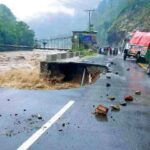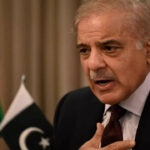ISLAMABAD, Apr 16 (APP): The speakers at a conference here Saturday underlined the importance of introducing a robust mechanism in the country to counter disinformation and curbing dissemination of fake news. They also highlighted how the information has been weaponized and Pakistan battles the challenge of disinformation at the hands of west and its eastern neighbor India.
A national conference titled “Global Politics in the age of Disinformation: Where Pakistan Stands” was organized under the auspices of Islamabad Institute of Conflict Resolution (IICR), an Islamabad based think tank.
Executive Director IICR Ms. Sabah Aslam in her opening remarks expounded the spread of misinformation and disinformation as part of the fifth generation warfare.
Legal Director at CMS Cameron McKenna Hassan Aslam Shad underscored that the disinformation lawfare was the most sinister form of lawfare. He further said that the people inadvertently become vehicles for dissemination and transfer of disinformation, making the entire state vulnerable. He concluded by recommending that Pakistan should develop a mechanism to counter disinformation by establishing a robust mechanism of state machinery to curb fake news and disinformation.
Policy consultant, Director of Geopolitical Research at Command Eleven Shahid Raza during his address, explained the history of disinformation operations. He termed the information operations as the extensions of the hybrid domain, working in tandem with the kinetic operations. He further underlined the threat posed by India’s state-sponsored propaganda targeting Pakistan in more than 90 countries.
He further added that multiple international networks carry out sophisticated attacks and try to sow seeds of hatred within Pakistan’s close allies and friendly states, particularly Turkey for its stance on Kashmir.
He also presented a counter disinformation model, aimed at curbing disinformation by identifying the constituencies of disinformation, deploying and tracking response, and deployment of contingencies.
Chief Executive Officer at WiXeman Global Noaman Abdul Majid explained the effects of disinformation on a state’s economy. He highlighted that disinformation has far-reaching consequences leading to almost crippling of trades to even causing substantial harm to human lives. He concluded by recommending that legislations be passed so as to enable swift action to curb disinformation and misinformation.
Prof. Dr Salma Malik said that disinformation is targeted at the brains i.e. the intelligentsia, rather than the body i.e. masses. She also underscored that an honest narration of history was a viable tool for nation-building, rather than a socially engineered or selective account of history.
Prof. Dr Amna Mahmood urged the government of Pakistan to launch mass sensitization campaign to limit the menace of fake news, misinformation and disinformation. She further said that, to begin with the students from universities should be involved in counter disinformation dialogues and campaigns.
Advocate Supreme Court India, Executive Director Legal Forum for Kashmir Nasir Qadri Advocate shed light on the vicious triangle of misinformation, disinformation, and Hate Speech (MDH) which he referred to as prominent types of ‘weaponized’ information. He recommended that there should be a clearer understanding of the main barriers to and challenges in incorporating consideration of MDH, and a robust policy framework must be enacted to curb this vicious triangle.






